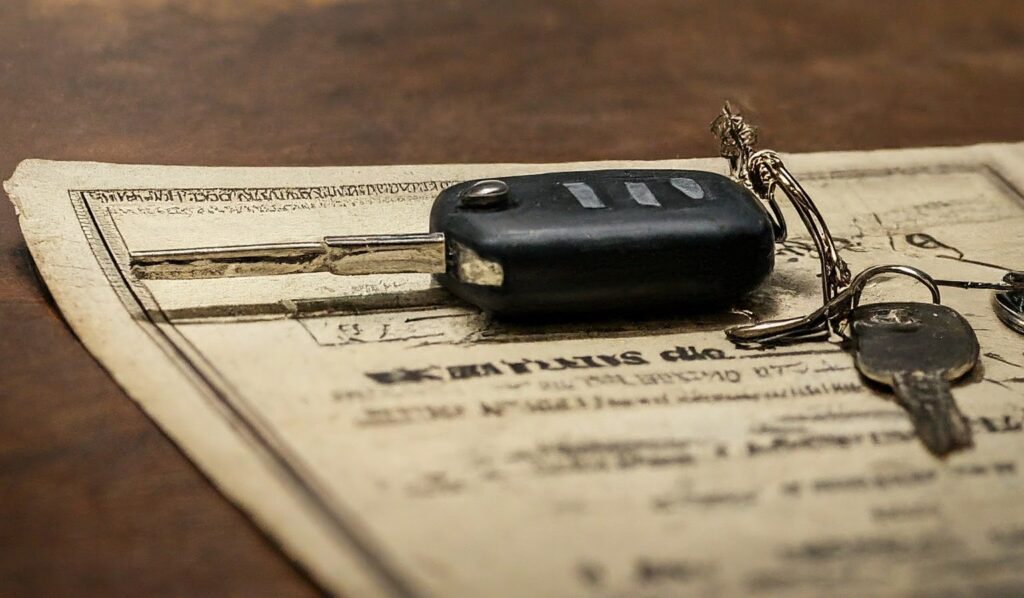
Selling an old car to the junkyard can seem like a straightforward process, but having the proper documentation is essential to ensure a smooth and legal transaction. One of the most critical documents you need is the vehicle title. This blog will delve into why it’s crucial to have a vehicle title when selling your car to the junkyard, how to obtain one if you don’t have it, and exceptions for certain states like Hebron, Louisville, Savannah, and Lexington where titles may or may not be necessary.
Why a Vehicle Title is Important
- Proof of Ownership: The vehicle title is the legal document that proves you own the car. Without it, you cannot legally sell your vehicle, as there would be no way to transfer ownership to the buyer, including junkyards.
- Buyer Confidence: Junkyards and scrap yards need to be assured that the transaction is legitimate and that they will receive clear ownership. A title ensures that there are no liens or legal issues with the car.
- Legal Requirement: In most states, it is illegal to sell a vehicle without a title. The title transfer is a mandatory step in the sale process to officially record the change of ownership with the Department of Motor Vehicles (DMV).
- Avoiding Fraud: Having a title helps prevent fraud and theft. It ensures that the car is not stolen and that the seller has the right to sell it.
- Streamlined Transaction: A vehicle title facilitates a smoother transaction. It allows for the quick completion of the sale and transfer of ownership, avoiding any potential legal issues or disputes.
Explore our vast inventory of used auto parts. ----> See our inventory now
How to Obtain a Vehicle Title
If you don’t have a title for your vehicle, here are the steps you need to follow to obtain one:
- Check with Your DMV: Start by visiting your local DMV or checking their website for the specific requirements and forms needed to apply for a duplicate or replacement title.
- Fill Out an Application: Complete the application for a duplicate title. This form will typically require information about the vehicle, such as the make, model, year, VIN, and your personal details.
- Provide Proof of Ownership: You may need to provide additional documentation to prove ownership, such as a bill of sale, previous registration, or a notarized affidavit.
- Pay the Fee: There is usually a fee associated with obtaining a duplicate title. The amount varies by state, so check with your local DMV for the exact cost.
- Submit the Application: Submit your completed application, supporting documents, and payment to the DMV. This can often be done in person, by mail, or sometimes online.
- Wait for Processing: After submitting your application, it may take a few weeks to receive your new title in the mail. Processing times vary by state.
States Where Titles May or May Not Be Required
While titles are generally required for vehicle sales, there are some exceptions, particularly for older or less common vehicles. Let’s look at specific cases in Hebron, Louisville, Savannah, and Lexington:
- Hebron, Kentucky: In Hebron, vehicles older than a certain age or considered “classic” may not require a title for sale. However, you must provide alternative proof of ownership, such as a bill of sale or previous registration. For vehicles newer than 25 years, a title is required to transfer ownership. The seller must provide a replacement title or obtain a new one from the Kentucky Transportation Cabinet.
- Louisville, Kentucky: Similar to Hebron, Louisville has lenient rules for older vehicles. If a vehicle is antique or no longer in regular use, it might be exempt from title requirements, provided there is other documentation to prove ownership.
- Savannah, Tennessee: In Savannah, vehicles that are less than 12 years old require a title for sale. However, older vehicles might be exempt, but it’s crucial to check local regulations and provide sufficient proof of ownership.
- Lexington, Kentucky: Lexington follows similar guidelines to Hebron and Louisville. For older or antique vehicles, a title may not be necessary. However, you must ensure you have other documents, like a bill of sale, to complete the transaction legally. For vehicles newer than 25 years, a title is required to transfer ownership. The seller must provide a replacement title or obtain a new one.
Worried about the quality of used auto parts? Call us now to know more about our quality assurance measures.
Conclusion
Having a vehicle title is essential when selling your old car to the junkyard. It serves as proof of ownership, ensures legal compliance, and facilitates a smooth and secure transaction. If you don’t have a title, obtaining one through your local DMV is a straightforward process that involves completing an application, providing proof of ownership, and paying a fee. While certain states like Hebron, Louisville, Savannah, and Lexington may have exceptions for older or non-operational vehicles, it’s always best to have proper documentation to avoid any potential issues.
Unsure about which used auto parts are right for your vehicle? Speak to our expert mechanics today for personalized advice.
At U Pull & Save, we understand the importance of having the correct paperwork when selling your vehicle. Whether you’re selling your car or looking for quality used auto parts, our team is here to assist you every step of the way. Visit us today to learn more about our services and how we can help you with your vehicle needs.
